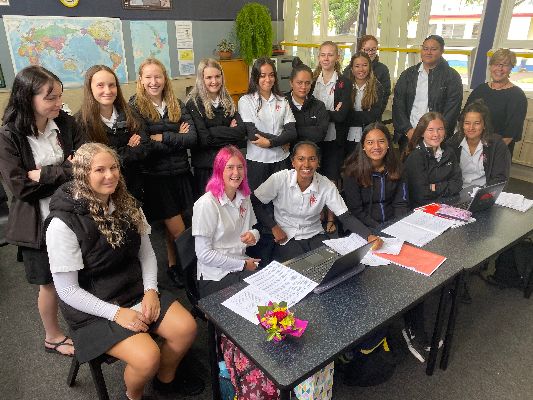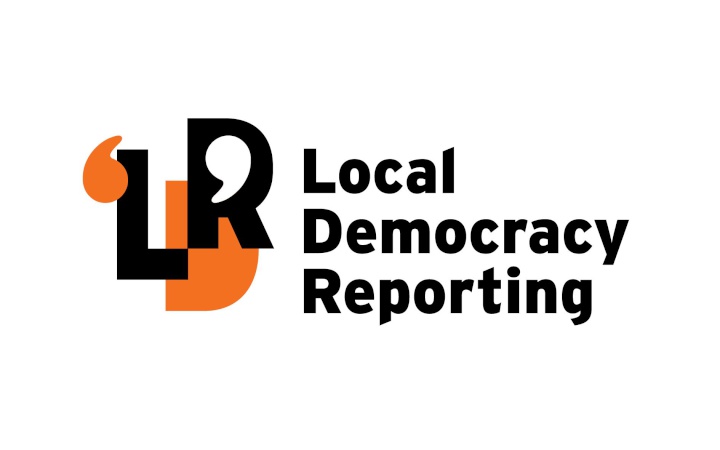Young people in Gisborne are calling on the district health board to reverse its decision to pull the pin on free school-based GP appointments – and they have the backing of at least one board member.

The students feel ignored by Hauora Tairawhiti, which decided late last year to stop funding the GP service at Gisborne Girls’, Boys’ and Lytton high schools that had been running for about two decades.
The DHB’s former contract with De Lautour Medical provided free doctor’s appointments up to three times a week at the schools, which more than 70 percent of the district’s 3000 secondary students attend.
“I’d like the DHB to explain how you can make decisions for people who haven’t even been asked,” said Madison Haggland, one of 29 Gisborne Girls’ High School students in Kristin McGill’s year 12 health class who are co-ordinating the campaign as part of an NCEA assignment.
The project has pedigree, with a similar campaign about 10 years ago involving a 2000-strong hikoi through Gisborne and leading to free bus transport for students who live in Kaiti.
“We’d like the DHB to revisit and ultimately reinstate the Doctors in Schools programme,” fellow student Talia Chetty said.
The teenagers have sent letters to board members and DHB staff seeking answers to their concerns over the decision, but they have been referred to a press release put out by the DHB on Monday.
Hauora Tairawhiti chief executive Jim Green and planning and funding manager Nicola Ehau declined to be interviewed for this article.
In a statement, Ms Ehau said “freeing up” the $124,000 the DHB spent on the in-school GP service each year “allows us to consider what else can be done to reduce equity issues for youth . . . particularly in our coastal and rural communities”.
As part of a redesign of youth health services, the DHB wants to establish hubs in Gisborne city and Ruatoria where young people can access free healthcare, but it has provided no time frame for getting the hubs up and running.
Board member Meredith Akuhata-Brown said the students had presented a “solid argument” and it was clear they felt let down by the board.
She believed the DHB needed to “show some grace” and review its decision to end the in-school GP service.
It could consider whether a new plan for youth health services was needed or whether the Doctors in Schools programme should be reinstated until there was something to replace it, Ms Akuhata-Brown said.
The students were open to attending a board meeting to discuss the issue – as suggested by Ms Akuhata-Brown – and to present the petition they are running at the three schools that have lost the GP service.
The petition calls for the DHB to reinstate the free doctor’s appointments – at least until an alternative service is up and running – and for it to discuss with current students the issues associated with centralised healthcare at a hub.
Ms Ehau previously told The Gisborne Herald the region’s young people had been calling for more wide-ranging health services since 2008, when their views were outlined in a DHB youth health strategy.
The DHB had run more recent surveys with young people, but their message was the same, Ms Ehau said.
Gisborne Girls’ High School principal Jan Kumar said the Doctors in Schools programme was meeting students’ health needs “in a really convenient way”.
It meant they didn’t need to become acutely unwell before being seen by a doctor, as could be the case if they were relying on parents or caregivers to pay for and transport them to an appointment.
Guidance counsellor and head of student services Sue Andrew said having a GP at the school minimised disruption to students’ learning, and it provided an opportunity to teach young people about self-care, something they may not get lessons on at home.
Ms Akuhata-Brown agreed schools were the ideal venue to address health issues but wanted to ensure the service was whanau-centred.
She was concerned the doctors may end up acting on behalf of parents but acknowledged how confidentiality allowed young people to seek health services they otherwise wouldn’t, such as contraception.



 Ramzy Baroud: No More 'Deals’ - What Palestinians Want And Will Fight To Achieve
Ramzy Baroud: No More 'Deals’ - What Palestinians Want And Will Fight To Achieve  Peter Dunne: Dunne's Weekly - Mayor Whanau's Rare Win - To Her City's Detriment
Peter Dunne: Dunne's Weekly - Mayor Whanau's Rare Win - To Her City's Detriment Binoy Kampmark: Ironic Dependency - Russian Uranium And The US Energy Market
Binoy Kampmark: Ironic Dependency - Russian Uranium And The US Energy Market Binoy Kampmark: Arrest Warrants From The Hague - The ICC, Netanyahu And Gallant
Binoy Kampmark: Arrest Warrants From The Hague - The ICC, Netanyahu And Gallant Ian Powell: General Practice Visits, Emergency Department Presentations, And Social Determinants Of Health
Ian Powell: General Practice Visits, Emergency Department Presentations, And Social Determinants Of Health Gordon Campbell: On The Hikoi Aftermath
Gordon Campbell: On The Hikoi Aftermath